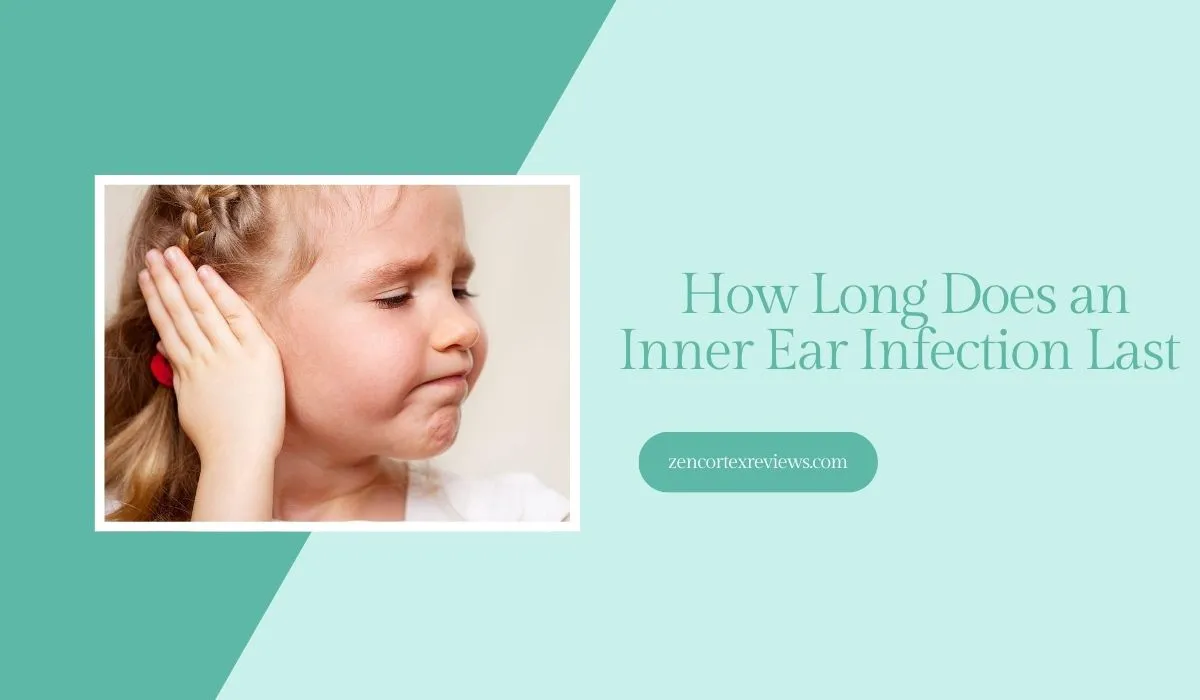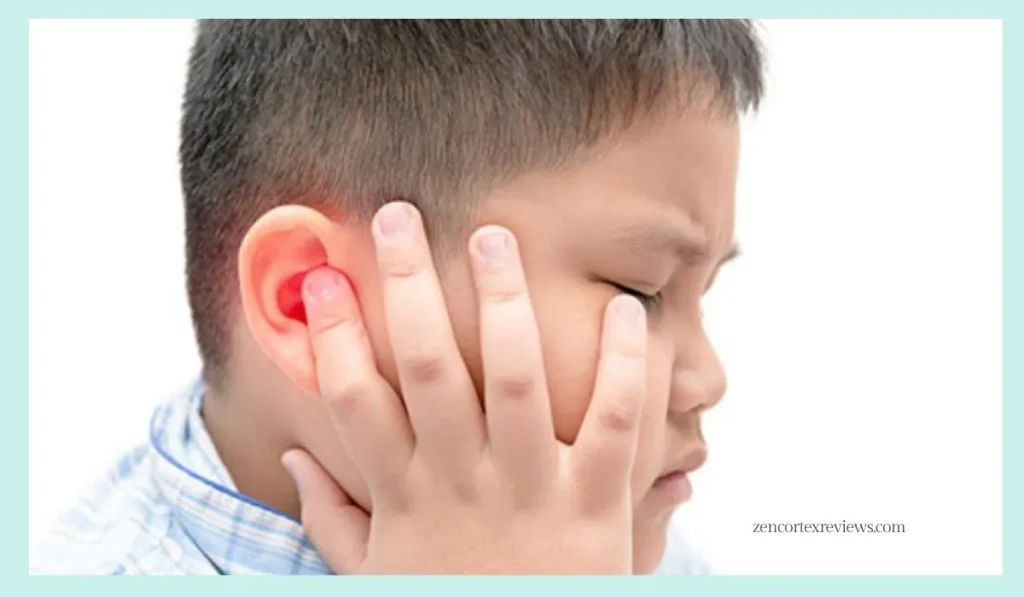Understanding How Long Does an Inner Ear Infection Last
Discover how long does an inner ear infection last, factors affecting duration, symptoms, treatment, and recovery. Get insights for better management

Disclaimer: Our recommendations are sincere, driven by the products’ benefits. When you buy through our links, we may earn a commission, backing our testing and development at no extra cost to you.
Ear infections are a common ailment, particularly among children, and can cause significant discomfort and pain. While outer ear infections (also known as swimmer’s ear) are more prevalent, inner ear infections, or otitis media, can be just as problematic. One of the most frequently asked questions by those suffering from an inner ear infection is, “How long does an inner ear infection last?” In this article, we’ll explore the duration of inner ear infections, factors that influence their longevity, and what you can do to alleviate symptoms and promote healing.
What is an Inner Ear Infection?

An inner ear infection, medically referred to as otitis media, occurs when the middle ear becomes inflamed due to a viral or bacterial infection. This inflammation can lead to a buildup of fluid behind the eardrum, causing pain, fever, and temporary hearing loss. Inner ear infections are most common in children due to the smaller size and horizontal positioning of their Eustachian tubes, which connect the middle ear to the back of the throat.
Exploring the Duration of Inner Ear Infections
Inner ear infections can vary in duration depending on the severity of the infection and individual factors. In general, most inner ear infections will resolve within a few weeks, with symptoms improving gradually over time. However, some infections may persist for a longer period, lasting up to 6 weeks or more in certain cases.
Typical Duration of an Inner Ear Infection
The duration of an inner ear infection can vary depending on several factors, but most cases resolve within a few days to a couple of weeks with proper treatment. In general, here’s what you can expect:
- Viral Inner Ear Infections If the infection is caused by a virus, it typically resolves on its own within 3 to 5 days. However, the fluid buildup and associated symptoms, such as ear pain and muffled hearing, may persist for up to 2 weeks.
- Bacterial Inner Ear Infections Bacterial inner ear infections tend to be more severe and may last longer if left untreated. With appropriate antibiotic treatment, most bacterial infections clear up within 7 to 10 days. However, if the infection is severe or resistant to antibiotics, it can take up to 2 weeks or longer to fully resolve.
Factors Influencing the Duration
Several factors can influence how long an inner ear infection lasts, including:
- Age Inner ear infections tend to be more persistent in younger children, particularly those under 2 years old, due to their immature immune systems and smaller Eustachian tubes.
- Severity of the Infection More severe infections, especially those caused by resistant bacteria or with significant fluid buildup, may take longer to resolve, even with appropriate treatment.
- Underlying Medical Conditions Individuals with weakened immune systems, such as those with diabetes, HIV, or undergoing chemotherapy, may experience prolonged inner ear infections due to their body’s reduced ability to fight off infections.
- Prompt Treatment Seeking medical attention and starting appropriate treatment (antibiotics for bacterial infections) as soon as possible can significantly shorten the duration of an inner ear infection.
Potential Complications
While most inner ear infections resolve without complications, some cases may lead to more serious issues if left untreated or if the infection is particularly severe. These complications can include:
- Chronic Fluid Buildup In some cases, fluid may continue to accumulate in the middle ear, leading to a condition called chronic otitis media with effusion, which can cause long-term hearing problems if not addressed.
- Ruptured Eardrum The buildup of fluid and pressure in the middle ear can potentially cause the eardrum to rupture, leading to ear pain, drainage, and an increased risk of further complications.
- Mastoiditis If the infection spreads to the mastoid bone behind the ear, it can cause a condition called mastoiditis, which can be serious and may require surgery.
Treatment Options for Inner Ear Infections
The treatment for an inner ear infection typically involves addressing the underlying cause and managing symptoms. Depending on the severity of the infection, treatment options may include:
- Antibiotics: If the infection is bacterial, antibiotics may be prescribed to help clear the infection and prevent complications.
- Antiviral medications: For viral inner ear infections, antiviral drugs may be recommended to reduce symptoms and shorten the duration of the infection.
- Over-the-counter pain relievers: Nonsteroidal anti-inflammatory drugs (NSAIDs) such as ibuprofen or acetaminophen can help alleviate ear pain and discomfort.
- Antiemetic medications: Medications to control nausea and vomiting may be prescribed to alleviate symptoms of dizziness and vertigo.
- Vestibular rehabilitation therapy: This specialized form of physical therapy can help improve balance and reduce symptoms of dizziness or vertigo.
- Rest and hydration: Getting plenty of rest and staying hydrated can help support the body’s immune system and promote faster recovery.
Taking Health supplements can also be a viable option. Health supplements like Zencortex are used for ear health and can be used for ensuring ear health. Always make sure to consult your medical practitioner before taking any medications or remedies.
Prevention Tips
While inner ear infections cannot always be prevented, there are steps you can take to reduce your risk:
- Practice good hygiene, such as washing your hands regularly and avoiding close contact with individuals who are sick.
- Avoid inserting foreign objects into the ear canal, as this can damage the delicate structures of the inner ear and increase the risk of infection.
- Manage underlying conditions, such as allergies or sinus infections, to reduce the likelihood of complications.
Conclusion
While inner ear infections can be frustrating and uncomfortable, understanding how long they typically last can provide reassurance and help you manage expectations. Most cases resolve within a week or two with appropriate treatment, but the duration can vary depending on factors such as age, severity, and underlying health conditions. If your inner ear infection persists or worsens despite treatment, it’s crucial to seek medical attention to prevent potential complications. By being proactive and following your healthcare provider’s recommendations, you can help ensure a speedy recovery and alleviate the discomfort associated with how long an inner ear infection lasts.
Lindsay Martinez
Lindsay Martinez, Au.D., is a licensed audiologist with over 10 years of experience in the field of hearing healthcare. She earned her Doctor of Audiology degree from the University of California, Los Angeles, and currently practices at Martinez Hearing Clinic, a leading audiology practice in the San Francisco Bay Area. As an expert in diagnosing and treating a wide range of hearing disorders, Dr. Martinez specializes in fitting advanced hearing aids and assistive listening devices. She is a fellow of the American Academy of Audiology and has published numerous peer-reviewed articles on topics such as noise-induced hearing loss and the latest innovations in hearing technology. Passionate about patient education, Dr. Martinez is committed to helping her patients improve their hearing and overall quality of life.
